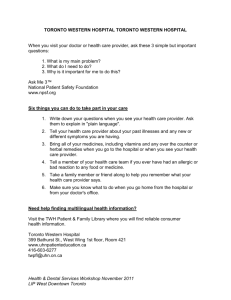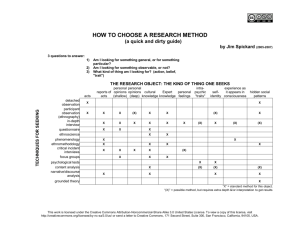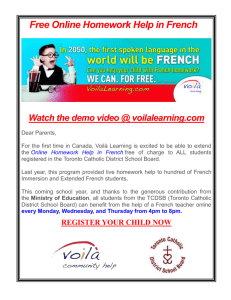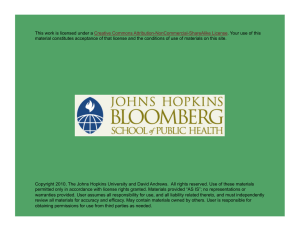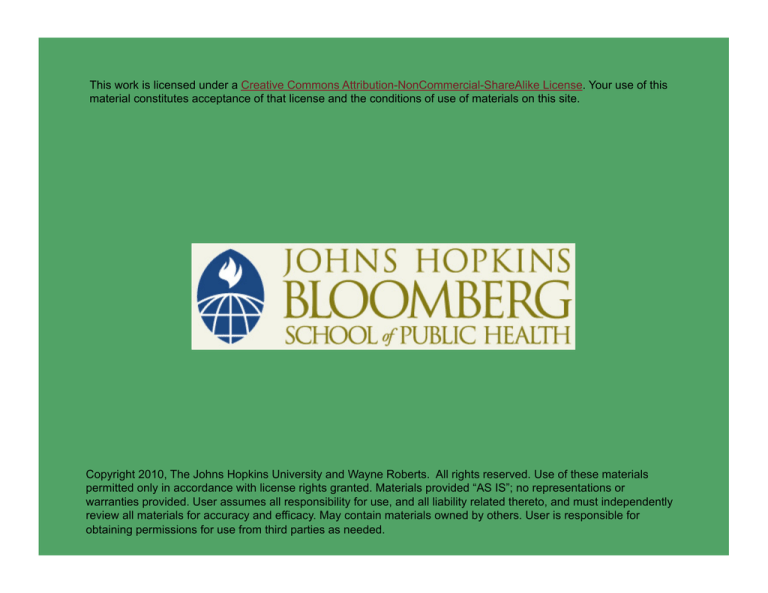
This work is licensed under a Creative Commons Attribution-NonCommercial-ShareAlike License. Your use of this
material constitutes acceptance of that license and the conditions of use of materials on this site.
Copyright 2010, The Johns Hopkins University and Wayne Roberts. All rights reserved. Use of these materials
permitted only in accordance with license rights granted. Materials provided “AS IS”; no representations or
warranties provided. User assumes all responsibility for use, and all liability related thereto, and must independently
review all materials for accuracy and efficacy. May contain materials owned by others. User is responsible for
obtaining permissions for use from third parties as needed.
Module 6
Sustainable Food Systems
Moving Toward a Better Food System
Wayne Roberts, PhD
Toronto Food Policy Council
Lori Stahlbrand
Local Food Plus
Wayne Roberts
Writes about food and sustainability
issues
Coordinator of the Toronto Food
Policy Council
On the boards of the Community
Food Security Coalition and Food
Secure Canada
Chair, Coalition for a Green Economy
Awarded the 2002 Canadian
Environment Awards silver medal for
contributions to sustainable living
4
Lori Stahlbrand
Founder and President, Local Food Plus (LFP)
Co-author of “Real Food for a Change”
Member, Toronto Food Policy Council and the
Ontario Minister of Agriculture’s Strategic
Advisory Committee
In 2008 awarded the Yves Rocher Foundation
“Woman of the Earth” Award for contributions
to local sustainable food systems
5
Section A: Community Food Systems,
Business, and the Green Economy: The Role
of Food Policy Councils and Nonprofits
Wayne Roberts, PhD
Toronto Food Policy Council
The Food Movement
The food movement is tied to themes that are much bigger than
food
-
-
-
-
Growth in number of food policy councils
Fastest growing sector of new economy centered on social
enterprises
Most explosive element in NGO/non-profit sector
Represents expansion of understanding of the basis for good
health
7
Community Food Systems
Photo by **Mary** via flickr.com. Creative Commons BY-NC-SA.
8
Toronto
Photo of Winchester School Community Food Garden by Jamie. via flickr.com. Creative Commons BY.
9
Food Share (1998)
A city-based food
security organization
Mandate to find
alternative to food
banks.
10
Toronto Food Policy Council (2003)
Based in government
Created to take on the challenge
Predicated on abundance
Using city assets
11
Community Food Systems
12
Backcasting
Powerful tool for building consensus
- Where do we want to be in 5, 10, 20 years
-
Where do we start today to get there
13
Purpose of the Food Charter
Food policy charters establish that…
- The city is in the food business
-
People have a right to food
14
The Elephant in the Room
Food is the largest
- Source of non-point pollution
-
-
-
-
-
Land use in the world
Occupational group in the world
Source of poverty
Employer of child labor
Etc.
15
Food is Connected to Virtually Everything
Food is about 6 billion people x 3 meals (on average) per day, or 18
billion meals daily
Food is a health issue
Food is an economic and poverty issue
Food is an environmental issue
16
Food Is Public Policy
17
Building Social Capital
Photo by Sean Dreilinger via flickr.com. Creative Commons BY-NC-SA.
18
Individuals Are Key
19
Paid Staff Necessary
20
Multi-dimensional System
Photo by Tony Case via flickr.com. Creative Commons BY-NC-SA.
21
Active Civic Engagement
22
Travel Light Via Partnerships
23
Summary
Food policy councils – primary purpose is to implement the food
charter
Seven elements of food policy councils
- Food is an enormous issue connected to all other issues
- Food is public policy
- Individuals with solutions play a key role
- Paid staff are needed; cannot rely solely on volunteers
-
-
-
Recognition that food system is multi-dimensional
Have active civic engagement and raises the capacity of others
Travel light via partnerships with others
24

